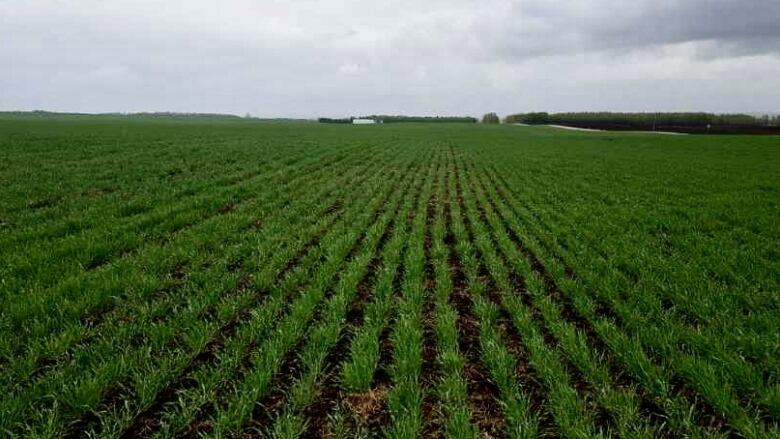Researchers in the rye: Alberta scientists studying environmental benefits of perennial grains
U of A study finds rye crops can pull CO2, other greenhouse gases out of the air

Scientists at the University of Alberta are studyingperennial grains, including perennial rye,and how they benefit the environment.
Most cropsin Western Canada are annuals such as wheat, canola, or barley, so cultivating perennial plants is a new innovation, said Guillermo Hernandez Ramirez, a soil scientist in the university's faculty of agricultural, life and environmental sciences.
Ramirez is a co-author of a U of A study published this year that found perennial rye absorbed much more carbon dioxide andmitigated other greenhouse gases.
"What we are proposing is to give an opportunity to take this other option for part of the land, and put in perennial grains, which are seeded one time and then we can harvest them over several, continuous years," Ramirez told CBC's Edmonton AMon Friday.
Ramirez added this is a new, innovative way to grow, harvest and cultivate stewardship of the land. Previous agricultural research has focused primarilyon annual crops.
"So now we are starting to do our homework on learning how to manage these perennial grains so that we can also see those same benefits," he said.
Ramirez and his team studied perennial rye for its many environmental benefits, like controlling soil erosion and using water resources efficiently.
"These perennial grains are able to remove CO2 from the atmosphere and mitigate all the greenhouse gases," Ramirez said, adding this allows the plant to have a longer growing season from April to October.
Listen here|
What does this mean for farming?
For farmers, perennial crops are a practical investment that remove the yearly stress of land preparation and seeding.
Althoughcrop yields are smaller than with the annual version of the same grain, the overall cost of the crop islower, Ramirez said.
"You don't have to buy seeds every year, and they use fertilizer in a much more efficient way," he said, addingperennial grain crops require the same amount of water as annual crops.
Ramirez and his team arecurrently working with breeders to increase productivity for the perennial rye.

Ramirez said the next step in the research process will look at improving winter survival, and how to manage diseases in perennial grains.
"If we identify the risk and if we are able to address and figure out how to manage these perennial grains, then we are able to help farmers to gradually start adopting them into the future," he said.
Ramirez and his team began the project four years ago when they received about $1 million in federal funding.
He said the province will now begin testing perennial wheat.
"Around the world there is a shift to be able to develop perennial crops."












_(720p).jpg)


 OFFICIAL HD MUSIC VIDEO.jpg)
.jpg)



























































































